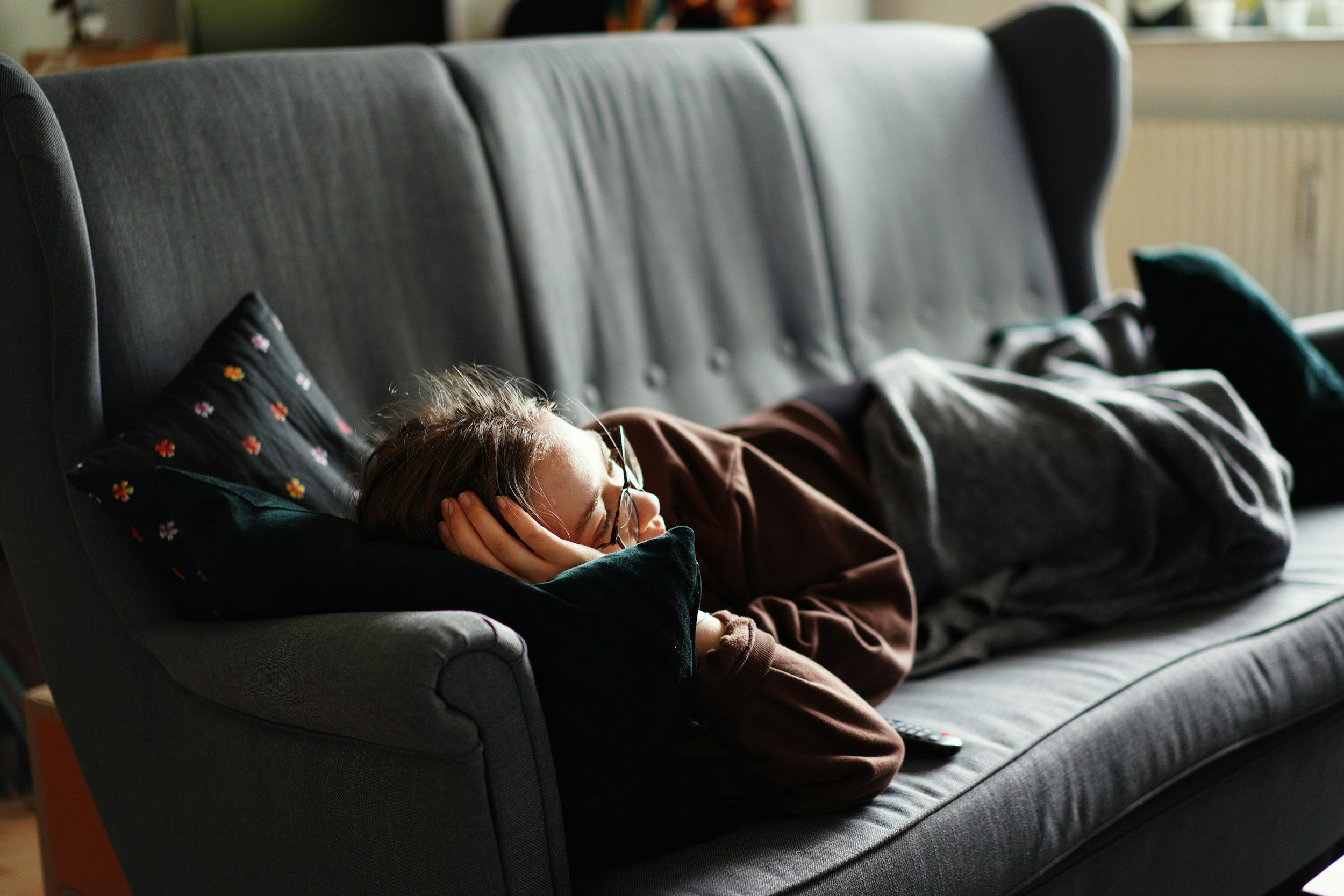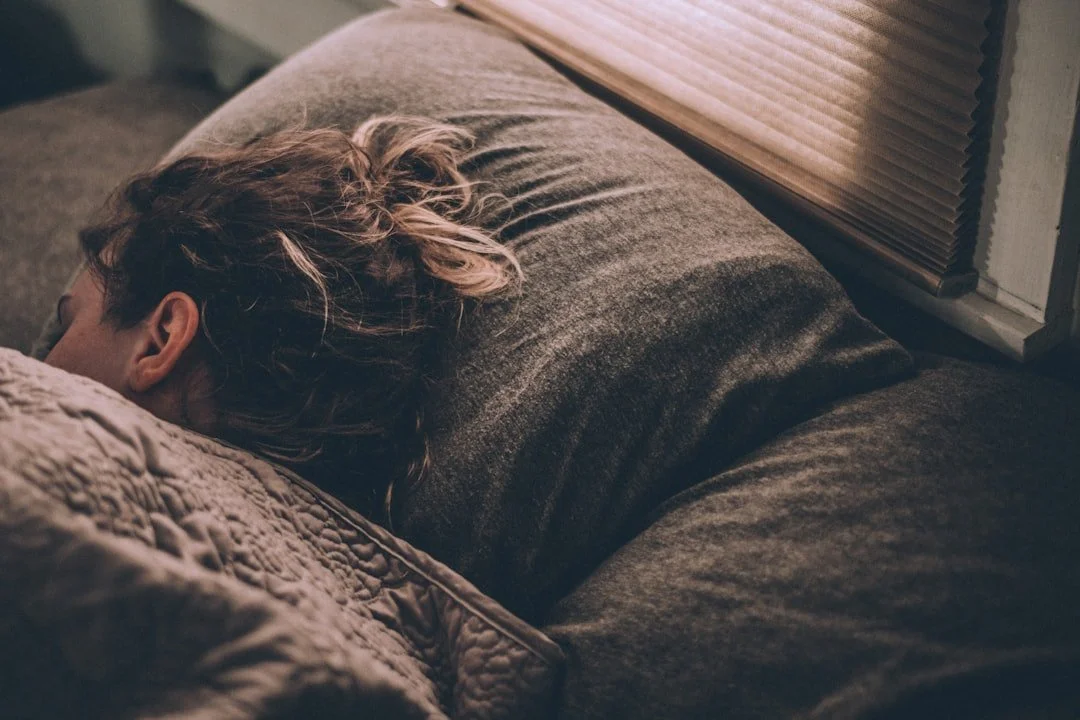
Insomnia Therapy
Get your Sleep Back on Track with Proven Behavioral Strategies
Has Your Sleep Quality Fallen Apart?
Are you wired as soon as you get into bed?
Do you toss and turn throughout the night?
Have you tried everything, but nothing has worked?
Does is seem like everyone else sleeps better than you?
Some people are champion sleepers. No matter the time or place, they’re fast asleep as soon they shut their eyes.
You’re just not wired for sleep like they are. Maybe you never were, or maybe you used to be but now it seems like a distant memory.
You’re Desperate for Good Sleep
Instead, your nights are filled with frustration, staring at the clock and wondering how you’ll survive the next day. You’re tired all the time, have trouble concentrating, and those dark circles are a constant reminder of it. You may have tried pills, masks, earplugs, and scoured the internet for solutions but nothing seems to have worked.
Chronic sleep loss like this is overwhelming. It can leave you irritable and depressed, making it hard to enjoy life. In fact, you’re probably thinking that if you could just sleep restfully, all your problems would be solved.
Good sleep may not solve all of your problems, but it sure can make them easier to manage. With the help of a trained insomnia therapist, you can learn how to improve the quality of your sleep so that it’s no longer an obstacle to the life you want to live.
An Insomnia Epidemic
Approximately 1 in 3 adults have brief bouts of insomnia and 10% have chronic insomnia (American Academy of Sleep Medicine 2020), which is about 26 million adults in the US. That’s a lot of people!
We live in a sleep-deprived culture. We’re addicted to our devices, inundated with stressful stimuli, and perpetually worried about all the tasks that need to get done. No wonder everyone’s tired.
We were also never taught the basic mechanics of sleep. Instead, we’ve simply been told we need to successfully log in eight full hours of restful sleep per night or we won’t be able to function. People hold onto this assumption so tightly that worries about getting those precious eight hours is enough to trigger a cycle of insomnia itself.
Just Try Harder to Sleep!
People also struggle with insomnia because our natural response to sleep loss is to try harder to sleep. We might set an earlier bedtime, try to sleep in on weekends, nap, or use sleeping pills to induce more sleep. Unwittingly, sleep effort like this typically backfires. When we try to force ourselves to sleep, we are inviting more restlessness and making it more likely that we get stuck in an insomnia cycle.
The good news is that with the help of an experienced insomnia therapist, anyone can learn about the natural mechanics of sleep and how to implement strategies that harness the factors that induce high quality restful sleep.
Cognitive Behavioral Therapy for Insomnia (CBT-I) is Evidence-Based
You can treat insomnia with pills but you’re just buying time or even making the problem worse. Most medications for sleep are not designed for long-term use, and most, if not all, have unpleasant or even dangerous side effects. The first line and most evidence-based treatment for insomnia is CBT-I (American Academy of Sleep Medicine 2020). It’s effective because you’ll be learning practical skills to promote good sleep that you can use for the rest of your life.
Most people who seek therapy for insomnia have had chronic sleep problems for many years and have tried just about everything. Unfortunately, few practitioners are trained in CBT-I, which means that most people with insomnia lack access to the most effective insomnia treatment.
What to Expect from Insomnia Treatment
Therapy for insomnia is generally short-term. For people who have no other mental health issues, it can be as few as four to eight sessions. Of course, many people dealing with insomnia are also struggling with anxiety, depression, or some other stressors in their life. That means treatment for insomnia can occur concurrently with regular therapy to address other issues you may be dealing with.
Our work together will include an assessment of your current sleep patterns, education about the body’s internal systems that regulate sleep, and an individualized treatment plan that addresses your particular sleep problems. You’ll log your sleep each morning using a simple and quick electronic app. Then we’ll analyze changes in your sleep data, making ongoing adjustments to your treatment plan until we’ve achieved a level of sleep quality that leaves you feeling rested.
Our work together will be a collaboration. While the techniques are simple, they aren’t always easy. It requires a commitment on your part and a willingness to challenge some of your preexisting beliefs and sleep patterns, but I’ll be there with you every step of the way. When it comes to insomnia treatment, I see myself not only as a therapist but also as your coach, supporting you throughout the process and cheering you on as you take steps to improve your sleep quality over time.
Psychotherapy for most mental health issues takes time and progress is often not as rapid as some people would like. Insomnia is the one exception. CBT-I is short-term and evidence indicates that most people experience an improvement in their sleep quality from just a few sessions (Newsom & Dimitriu 2024). This doesn’t necessarily mean you’ll be a champion sleeper, but just about anything is better than being stuck in an exhausting insomnia cycle.
You can read more about the CBT-I treatment process in my corresponding modality page.
I Know from Experience
Insomnia has been an area of interest of mine for as long as I’ve been a social worker. Because insomnia co-occurs with so many other mental health issues, it’s been an unavoidable aspect my clinical work for the past 25 years.
And personally speaking, restful sleep was never easy for me either. I’m one of those people who’s had lifelong struggles with insomnia. I read every book and article I could find and followed all the sleep hygiene recommendations religiously. It wasn’t until I learned about CBT-I, through my professional practice, that I finally understood how many things I was doing wrong. CBT-I has transformed my sleep. It’s just something to manage now, not something that manages me. All of the CBT-I techniques that I’ll teach to you, I’ve used myself, and I’m confident you’ll experience the same relief for your chronic sleep problems.
You Might Still be Questioning if CBT-I is Right for You…
How do I know if this is going to work for me? I’ve tried so many other things that haven’t.
Most people who see a sleep specialist for insomnia are just like you. They’ve read a ton and tried all of the sleep hygiene tips. Good sleep hygiene is important (e.g., there’s no debate about the negative impact caffeine has on sleep), but sleep hygiene alone won’t fix your insomnia. CBT-I is considered the first line treatment (American Academy of Sleep Medicine 2020) for both short-term and long-term insomnia, and evidence indicates that 70%-80% of people who participate in formal CBT-I treatment experience improvements in their sleep. This doesn’t guarantee that it will work for you, but if you keep an open mind, you’re likely to experience at least some improvement.
Will I need to get off my medication first?
If you’re already taking a medication to aid with sleep, whether it’s prescription or non-prescription, there’s no need to make any changes to it. You may eventually decide to wean off of the medication once your sleep improves, but there’s no need to do it while we’re working together.
I’ve heard that CBT-I involves sleep restriction. That sounds scary because I’m already so tired. Do I have to do that?
There are several components of CBT-I and one of them is called sleep restriction or sleep compression. It involves reducing time in bed based on a specific calculation that comes from the person’s sleep log data. The purpose is to strengthen the body’s natural sleep drive, so your sleep quality deepens. While it is one of the primary components of CBT-I, it’s not recommended for everyone. But even if it is, the specific duration of time in bed is decided collaboratively and is a temporary intervention that is gradually increased as sleep quality improves. It’s not as a scary as it sounds.
Let’s Get You Sleeping
If you’d like to learn more about CBT-I techniques, let’s get you connected to a specialist who can help you start your journey to restful sleep. Take the first step by scheduling a free video consultation or send me an email and I’ll be happy to answer whatever questions you might have. I look forward to hearing from you.
“New guideline supports behavioral, psychological treatments for insomnia,” American Academy of Sleep Medicine. December 16, 2020. https://aasm.org/new-guideline-supports-behavioral-psychological-treatments-for-insomnia/
Rob Newsom & Alex Dimitriu, “Cognitive Behavioral Therapy for Insomnia (CBT-I): An Overview,” SleepFoundation.org. March 27, 2024. https://www.sleepfoundation.org/insomnia/treatment/cognitive-behavioral-therapy-insomnia



